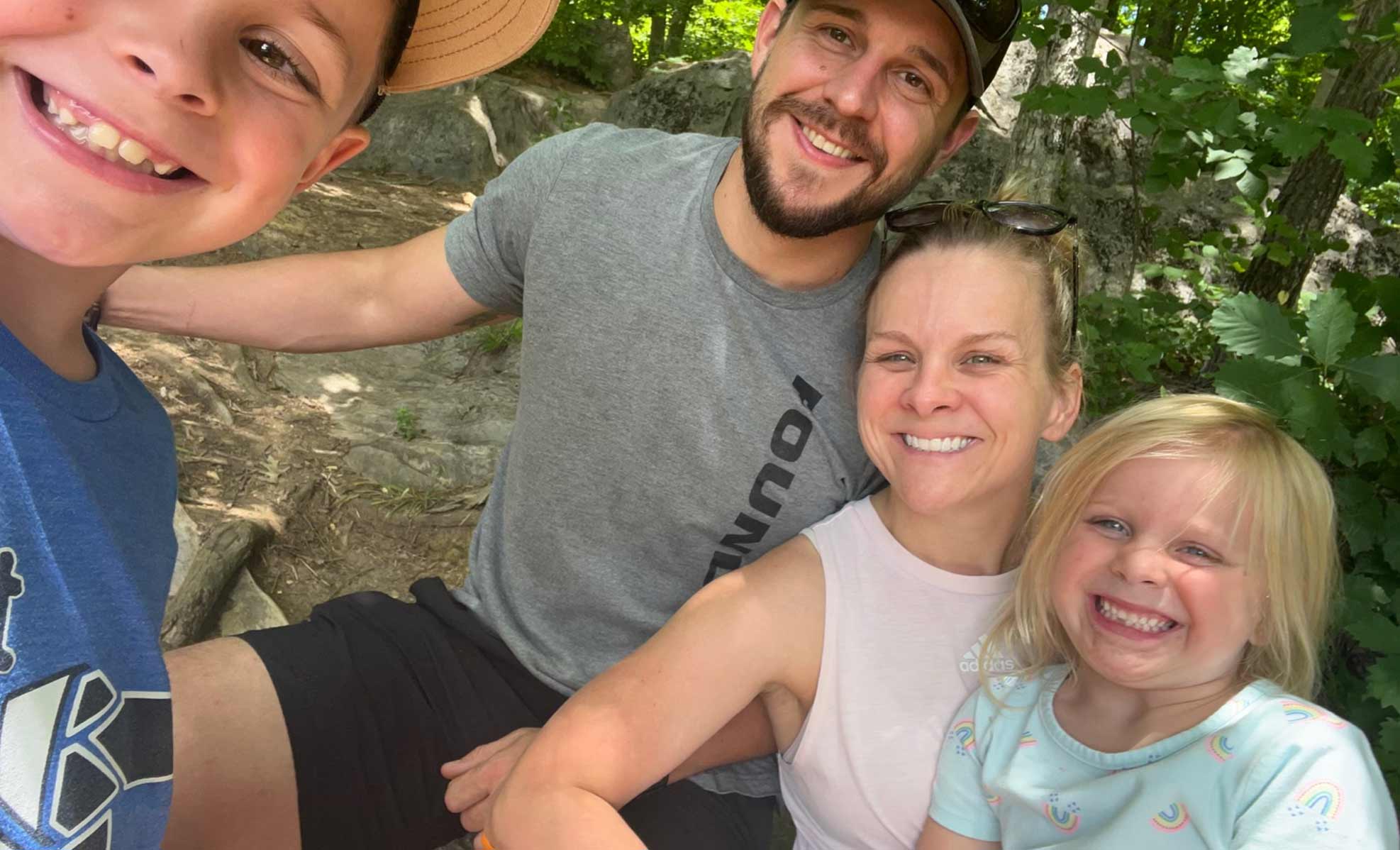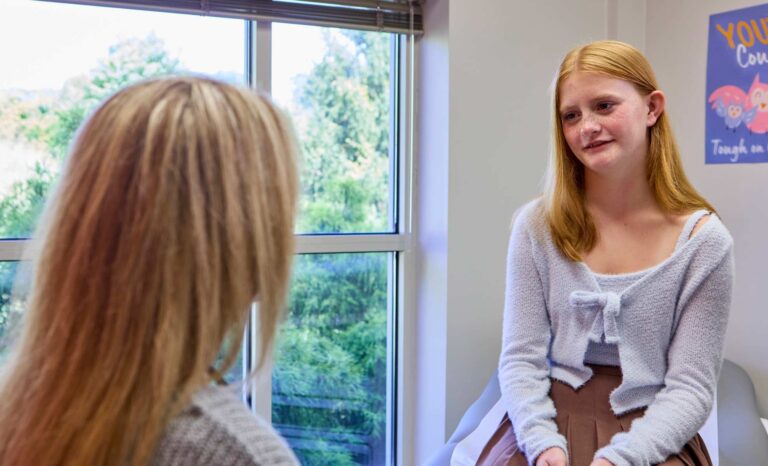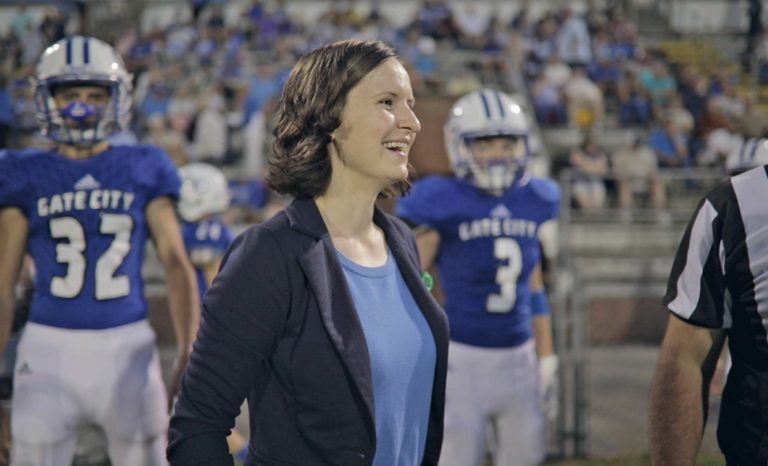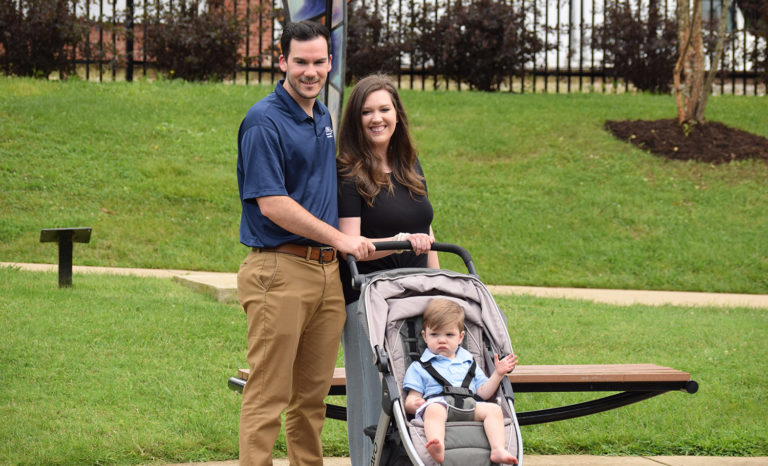Kids of all ages love the relaxed times of summer. But with school bells on the horizon, parents must start preparing their children—and themselves—for the school routine.
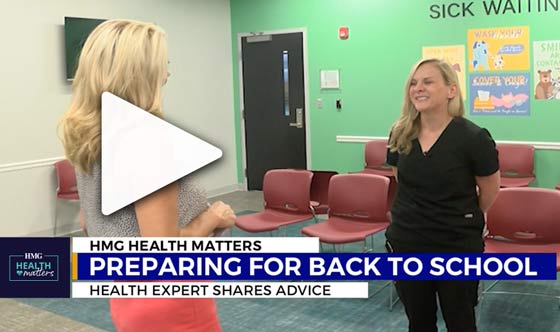 WJHL Interview: Dr. Cassie Hudson
WJHL Interview: Dr. Cassie Hudson
It doesn’t have to happen all at once. At my house, we get back into the bedtime routine little by little. Even so, my kids are quick to remind me it’s not bedtime when it’s still light outside!
Though I’m “Mom” to my five-year-old and seven-year-old, I’m also “Dr. Hudson” to all the families who go to HMG’s Bristol Pediatric Associates. So, I know how hard it is to make the change to school time schedules and deal with new-classroom nerves. Whether it’s for my own kids or “my kids” at the clinic, good planning can set everyone up for a year of success!
Start Setting a Sleep Routine
Maybe your family enjoyed fun summer memories watching late-night movies or playing outside until sunset. Now, the return to a school-year schedule means it’s important for your kids to get enough sleep, no matter their age.
Preschoolers and first-graders need more sleep than middle- and high-school students. Each night, the American Academy of Pediatrics (AAP) recommends:
- Preschoolers and kindergarteners get 10-12 hours of sleep
- First-graders through sixth-graders get 9-12 hours of sleep
- Seventh-graders through college-aged students get 8-10 hours of sleep
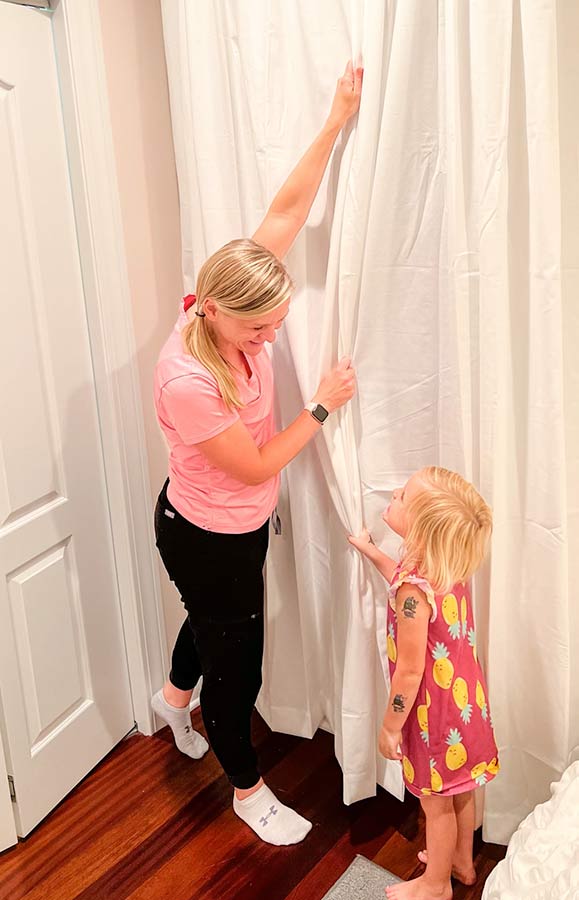
As I mentioned, I try to adjust my kids’ sleep schedule slowly. For young children, parents should decide when the alarm needs to go off in the morning to arrive at the bus, carpool, or school on time. Count backward using the AAP’s sleep guidelines to set your child’s school-year bedtime. Then, put your kids to bed 15 minutes earlier each night until they reach their new bedtime.
Avoid big changes—such as moving lights-out from 9:30 p.m. to 8 p.m.—because kids’ bodies don’t adjust fast. Also, my children always say, “But it’s still light outside!”, so I’ve found that hanging dark drapes on the windows helps to put them in a restful mood and makes it easier to sleep.
You can always back off a little on the weekends like you would during the regular school year. But structure and routine are valuable on weekends as well. So, plan activities to be busy, too. Have fun! Go to the pool, the park, or the playground. Enjoy what’s left of the lazy days of summer.
Practice Lunchtime Lineups
Both of my kids will go through the lunch line for the first time this year. That’s a big step! We plan to go to a local buffet restaurant so they can practice standing in line, holding a tray, picking out healthy food, and checking out.
Kids usually have only 20-30 minutes to eat lunch at school. That can make lunchtime much more stressful than long lunches at home. But practice is a good way to get the worries out. Before school starts, practice shorter lunches, and have your kids eat with their new lunch pail or bento box to make sure they can open everything by themselves. Some lunch boxes and food containers can be difficult for little fingers to open, especially if they’ve never done it before.
Also, let your kids help you make meals or have older kids make lunch for themselves. Talk about what a healthy lunch looks like and why they shouldn’t share foods. (The reason is to avoid sharing germs and triggering allergies their friends might have.)
Ease Back-To-School Jitters
Change is always hard, no matter how old we are. I have a tough time with change myself, even as an adult! Because of the COVID-19 pandemic, we’ve seen a lot more worry and mental health issues, even among young children.
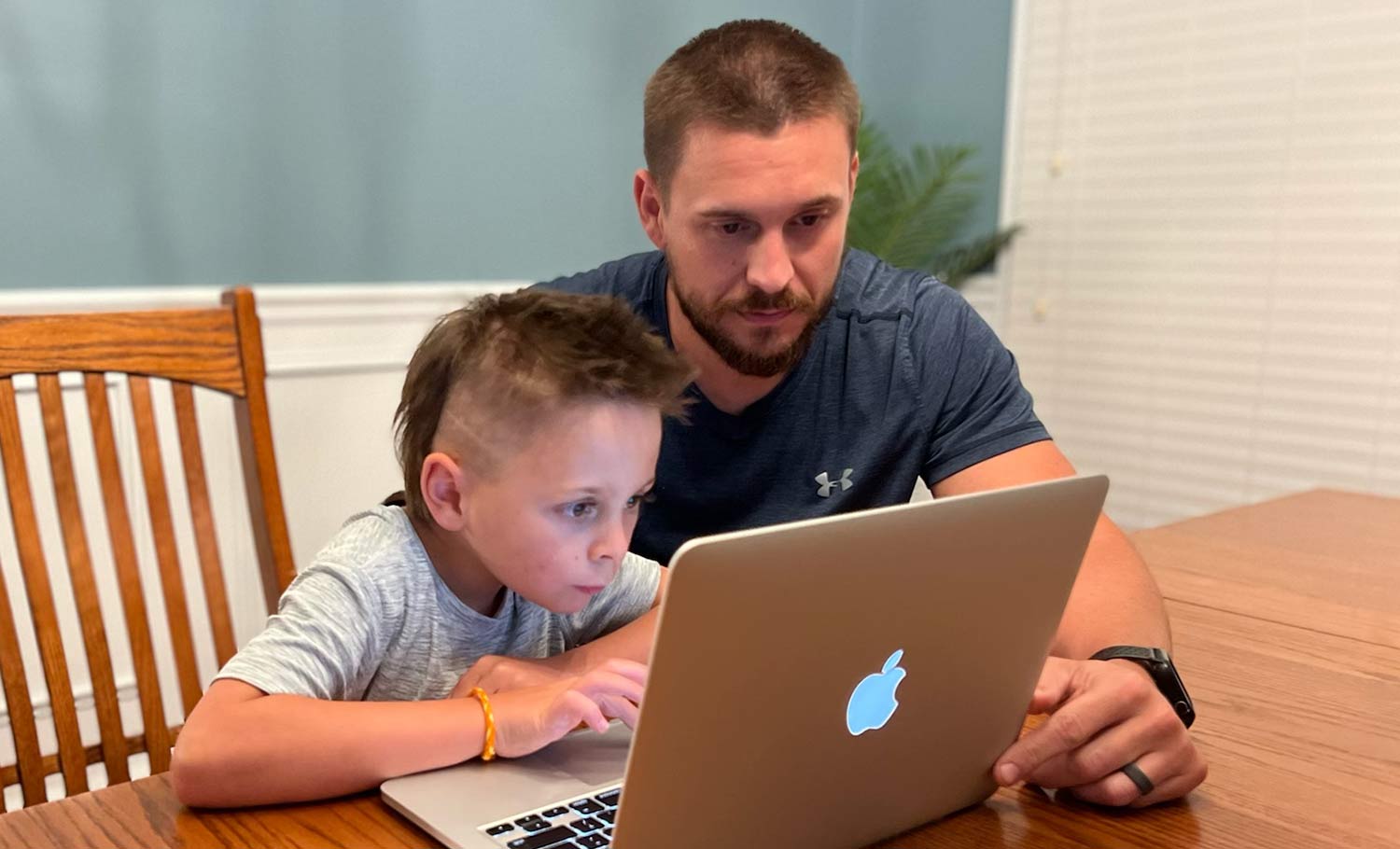
Some signs that your child might feel anxious about school include:
- Early morning belly pain
- Trouble saying goodbye to you that lasts after the first week of school
- Being angry or crying more often or faster than normal
- Having a hard time focusing on homework or hobbies
- Changes to eating or sleeping habits
Talk to your child’s teachers or coaches if you’re worried. They’re trained to watch for certain behaviors in the classroom.
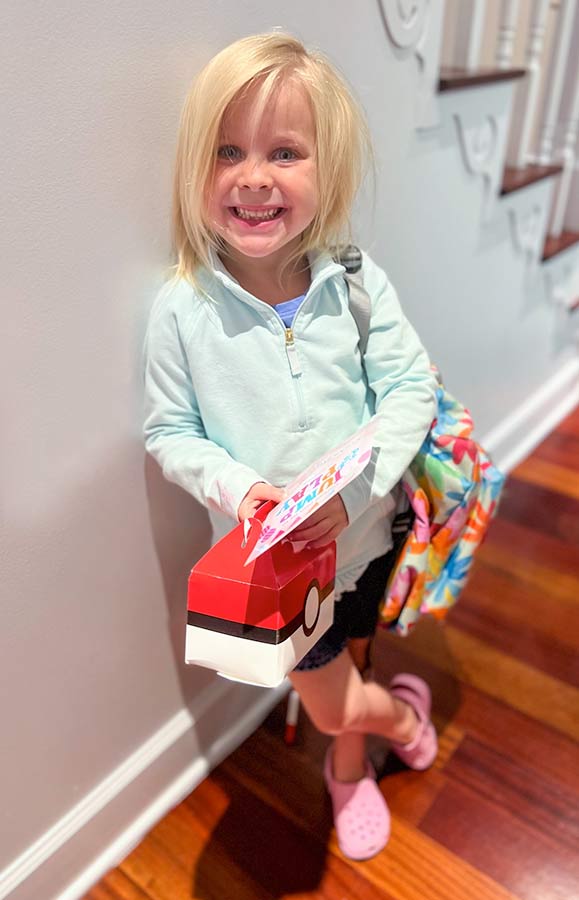
I welcome parents to talk with me, too. My job is to care for your child emotionally, mentally, and physically. HMG pediatricians and family medicine providers are here through it all for your family. So, give us a call! Sometimes, kids express feelings to a trusted provider that they might not tell a parent.
Still, it’s important for you to talk to your kids about how they feel about going back to school. Kids may start to show old behaviors or need help to boost their confidence. Create a safe environment where they can talk about their worries. Listen, be open-minded, and ask open-ended questions. Try to be patient and understanding.
Don’t be afraid to tell your children that change is hard for you, too. If you’re home with them during the summer, let them know you’ll miss being with them all day.
Keep in mind that setting new routines and expressing feelings is just as crucial for parents as for kids. Talk with your kids, friends, and community. Remember the blessings that school brings, as children learn new things in the classroom and grow socially. Sometimes, we have to remind ourselves of that as parents.
Start the Year Off Right
Preparing kids mentally, emotionally, and physically for success in school is key. As you pick up school supplies, also check these items off your to-do list before the year starts:
1. Make an appointment with your pediatrician. Late-summer slots fill up fast. So, now is a good time to make sure your kids are up to date on vaccines, wellness exams, and any physicals they need for sports or school.
2. Be honest with your kids about what you do when you’re overwhelmed by change. Give them age-appropriate examples of your coping skills. That can help them develop their own ways of dealing with back-to-school stress.
3.Read with your kids. It’s a great way to shift back into school mode. Try reading with them for 15 minutes before going to bed, before swimming, or when coming inside from playing.
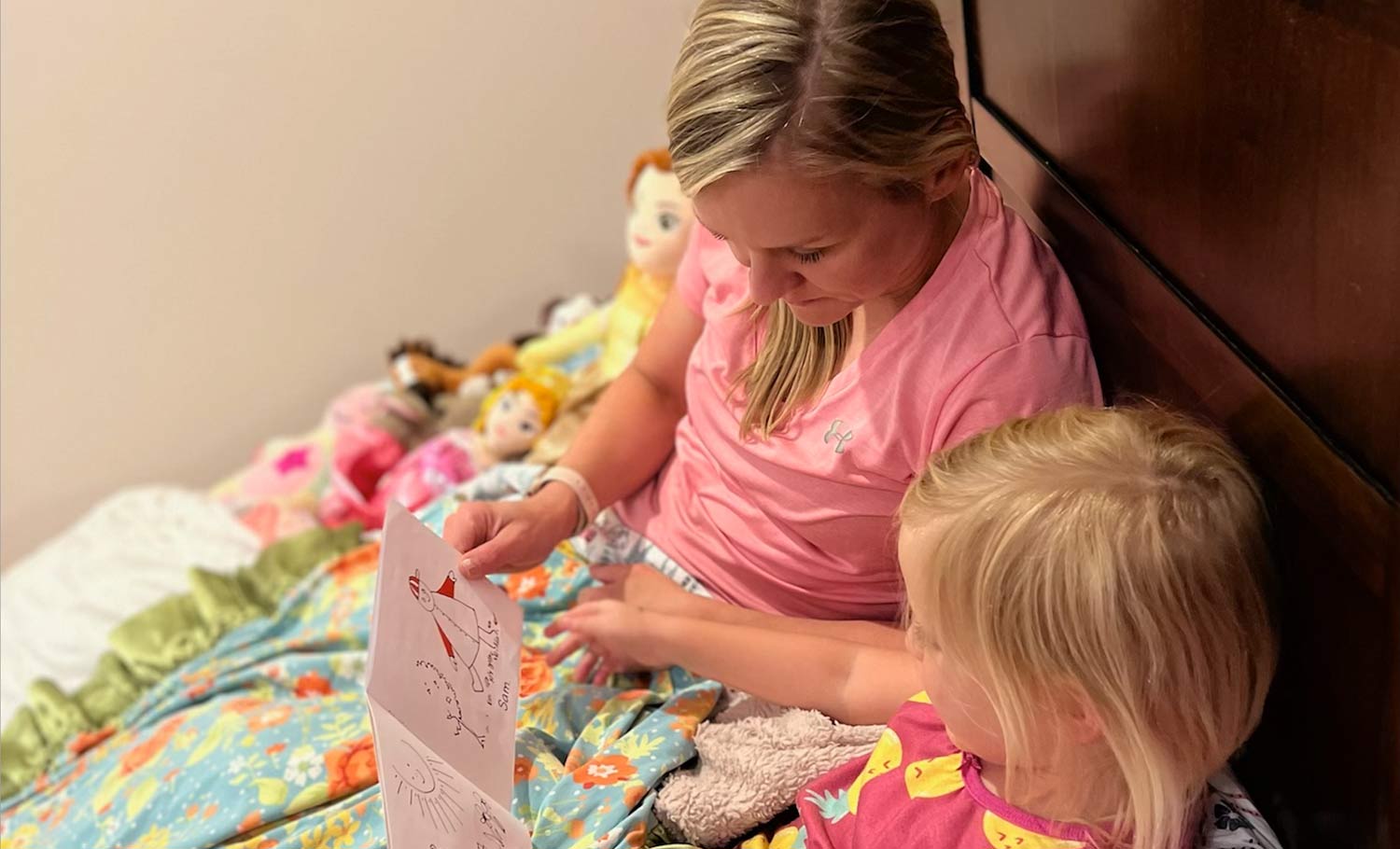
If you’d like more help getting ready for the school year, set up a visit with your pediatrician or family medicine provider. It’s easier to handle life’s big and small moments when you know you have a trusted health partner by your side. You can find a provider nearest you at one of HMG’s facilities or call 1-877-HMG-1213.
Start your new routine early. It’ll help shake off the summer cobwebs and prepare your family for a successful new school year!


